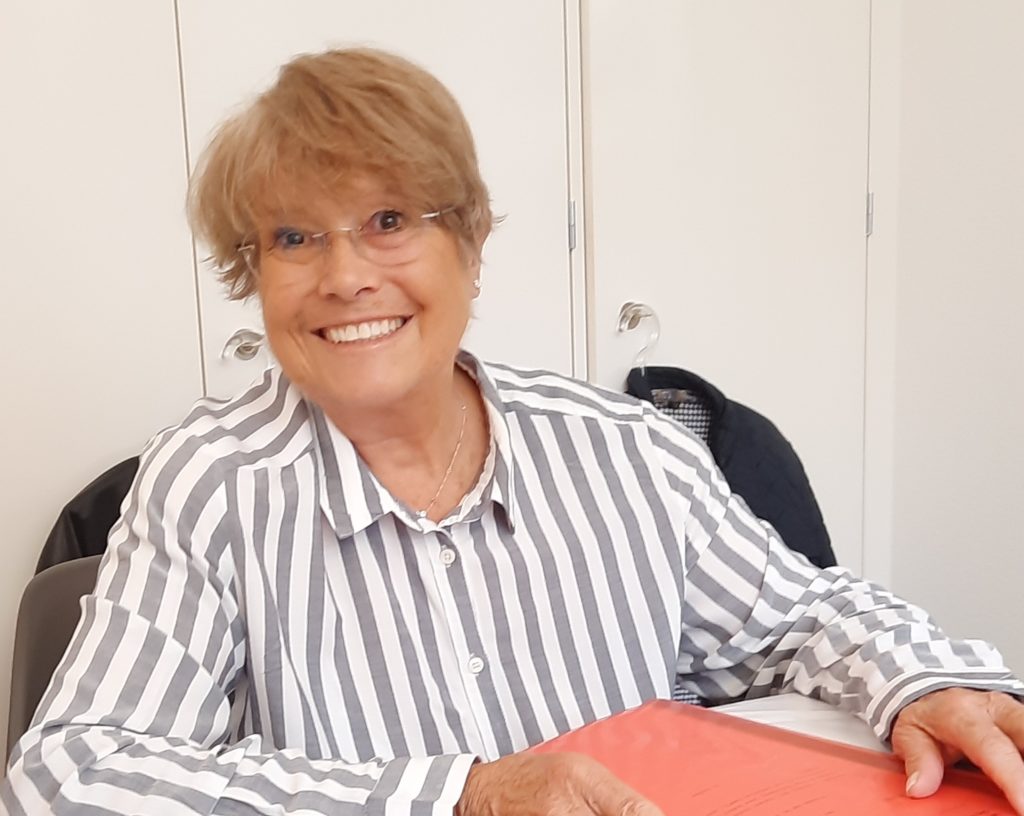“It’s not about changing personal destiny, but about changing society.”
Lili Nabholz was born on the 31st of December 1944 in Solothurn and grew up in a three-generation house with a business. The women worked in the business as a matter of course and without pay. Because of her keen sense of justice, she studied law in Zurich from 1965 and was a minority as a woman at the time. She graduated, got married and worked as a trainee lawyer in a law firm on a salary of CHF 500 while her husband studied. Alongside this work, she wrote her dissertation on “Konventionalscheidung”. After being admitted to the bar, she led the free legal advice centre for women at the Evangelical Women’s Association in Zurich and was politicised by the experiences she had there with the life stories of countless women. She began to give lectures on women’s legal issues and was asked by the then city councillor Regula Pestalozzi whether she would like to take over the presidency of the 4th Swiss Women’s Congress for the International UN Year of Women in 1975. Lili Nabholz accepted the task and was subsequently appointed to the Federal Council’s newly created Federal Commission for Women’s Issues, which she later chaired.
As vice president of the first constitutional initiative launched by women, ‘Equal rights for men and women’, she campaigned for gender equality to be enshrined in the constitution. Art. 4 para. 2 of the Federal Constitution, which was adopted on 14 June 1981, provided for direct legal action for equal pay, among other things. As a lawyer, she utilised the new constitutional possibilities and successfully brought the first equal pay case for female nurses, whose work was paid less than that of paramedics. She took legal action against discriminatory curricula at primary schools, discrimination against female farmers in the disability insurance system and she represented the interests of women in the typically female profession of dental hygienist, who were not allowed to practise their profession in a self-employed capacity. As a National Councillor, she was also a member of the Parliamentary Assembly of the Council of Europe, where she served as Vice-President of the Human Rights Commission. She has received awards from the Ida Somazzi Foundation for outstanding achievements in the advancement of women and the Foundation against Racism and Anti-Semitism, among others.
Lili Nabholz describes herself more as a substantive politician than a party politician. She emphasised the importance of justice and fought against discrimination in various areas, including the social security system, which disadvantaged women. She was one of the mothers of the 10th AHV revision with a pension system independent of marital status with child-raising and care credits.
“Paper is patient and everything looks better on paper than it is in reality. The reality must be changed. The gap between theory and practice must be closed. We must fight for equal rights and not lose what we have achieved.”
For additional documents, please send an e-mail to: lst.fiocchi@ius.uzh.ch

